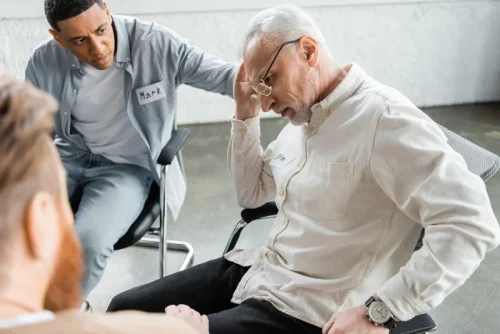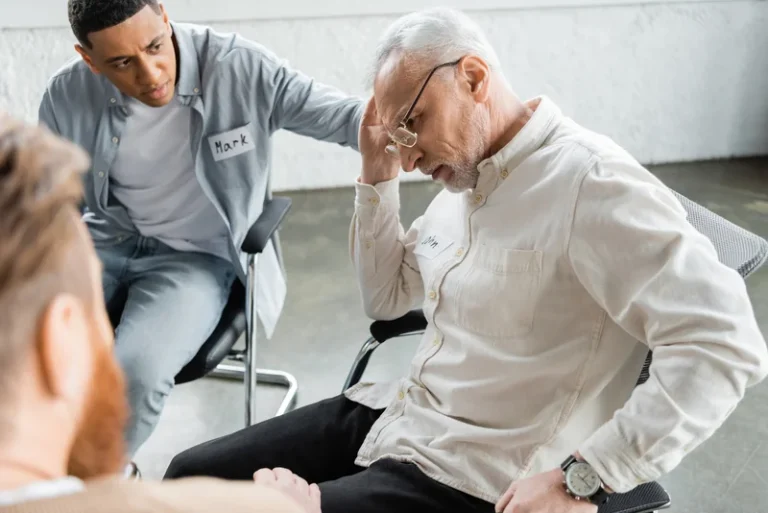Find Transitional Housing, Sober Housing in Massachusetts: A Safe Place to Live and Grow

Sober House Directory is a helpful starting place to find a recovery home and includes listings for sober houses, recovery residences, structured group homes, and other sober living for men and women in recovery. If you or a loved one is searching for residential treatment in the greater New England area, Spring Hill Recovery Center may be right for you. Our treatment center offers a range of treatment programs for helping residents conquer addiction, including residential and intensive outpatient programs. Gavin Foundation Inc. is a community substance abuse education, prevention, and treatment program. After examining the website, we found that programs are offered to individuals, support services to their families, and community awareness. The focus remains to be on spreading community awareness about addiction and recovery.
- Guests are ofter referred from treatment or other clinical or judicial settings, but many guests self-refer to our homes.
- Other individuals are leaving rehab and looking for a way to bridge their life in treatment and the sober life that awaits them after.
- At Teras, clients work with their on-site case manager and our vocational coach to develop a recovery fellowship and engage work.
- Massachusetts sober living homes refer to any substance-free, structured group living arrangement for persons recovering from addiction.
Are there any restrictions or rules while in a sober living program?

Sober house certification is an important factor to consider as you look for sober living. Massachusetts sober houses are certified by the Massachusetts Alliance for Sober Housing, or MASH. Not all homes offer the same things, so finding one by word of mouth can be helpful. If you have recently completed treatment, the staff can usually provide referrals to local, trustworthy sober living homes.
Stephanie McLean

We understand that transitioning from sober living to independent living may be difficult. For those clients leaving Arlo House continued case management services are offered to help ease the transition. Substance abuse treatment services within halfway homes may be minimal or alcoholism symptoms non-existent. Halfway homes tend to be more crowded and less personalized to meet the needs of individuals overcoming substance abuse and addiction. After living in a therapeutic community, residents may transition into a sober living home or return home to continue attending treatment on an outpatient level. Tharros House is a private peer program which is not affiliated with any state or federal offerings.
Recovery Resources for Massachusetts Sober House Residents
Most residents engage in household chores, exercise, and personal grooming to start the day. Residents who work, school, or volunteer leave the facility to attend to these obligations. Residents in outpatient treatment may also report for therapy and counseling sessions. Residents stay in a home with a staff to supervise them and hold them accountable. They share the goal of achieving both stable sobriety and complete independence.

He heard hallucinatory voices multiple times a day and suffered bouts of paranoia so severe that he sometimes was convinced the FBI was following him. He bounced in and out of hospital emergency departments seven times, racking up more than $200,000 in medical expenses. boston sober homes Arlo House has established relationships with a multitude of clinical service providers that include in-person Intensive Outpatient & Partial Hospitalization Programs, and clinicians who specialize in Substance Use.
STAFF MEMBERS
Sober living facilities exist to help bridge the gap between attending a rehab program and independent living. Social workers at Boston Health Care for the Homeless identified dozens of people in Greater Boston who were either homeless or incarcerated who had been hospitalized for substance use-related problems. Participants would also have access to trained addiction specialists (known as recovery navigators) who could help them find work, counseling, and other support services. Sober living houses are not suitable for people who are medically unstable or are actively struggling with drug or alcohol addiction. This may require a higher level of care in an inpatient or residential treatment program. The restrictive phase focuses on removing substance triggers around the resident while concentrating on learning the basics of sober living.
Sign up for text support
Testimonials are available on our site, and we are happy to connect you with families and past clients who can share their experience with you. We take privacy seriously, and client information is not shared with any outside sources, except those affiliated with treatment, or which the client otherwise requests. Monthly fees at Tharros include food for all meals and snacks, transportation by our team in commercially insured SUVs, all activities, Tharros groups, and peer mentoring support. At Teras, clients work with their on-site case manager and our vocational coach to develop a recovery fellowship and engage work. Clients of Teras may also be involved in outpatient treatment while they develop a foundation in their recovery work, and apply to work positions.
Cost of Sober Living Homes
Massachusetts boasts one of the best recovery environments in the United States, and certainly one of the strongest sober living communities in New England. On Sober House Directory, you can find numerous options for sober living with male, female, co-ed, certified and non-certified sober housing options across Massachusetts. Sober homes are available in Massachusetts for you or a loved one to bridge the gap between clinical treatment and independent living. Many in early recovery consider their sober house to be one of the most important parts of their recovery journey. Sober House Directory helps you find sober houses, structured group homes, and sober living. Our team of sober house owners, operators, consultants, clinicians, and providers understand sober living is challenging; our mission is to connect residents to sober houses so everyone can find their recovery community.
- Continuing substance abuse treatment, which may involve counseling and attending support groups, is intended to help prevent the cycle of relapse that often plagues people striving to conquer addiction.
- Join our sober living community or refer a client, family member, or friend.
- Boston is an ideal location to continue on the recovery path with a variety of resources for residents of all ages.
- Staying in a sober living community is a practical way to ensure you are surrounded by positive influences and the resources you need when you are trying to find your footing in sobriety.
Residents can also commit to an outpatient rehab treatment program during their stay in the house. A sober living facility is a residential accommodation where individuals recovering from substance use disorders can live in a structured, supportive and substance-free environment. The length of time that a person lives in a sober living facility varies based on their unique needs and progress on their recovery journey; however, the average length ranges from 6 months to several years. Some homes require you to commit to living in their facility for a certain length of time. Some equate these programs to residential treatment, but they really have more to do with providing transitional living arrangements than offering supportive medical or therapeutic care.

